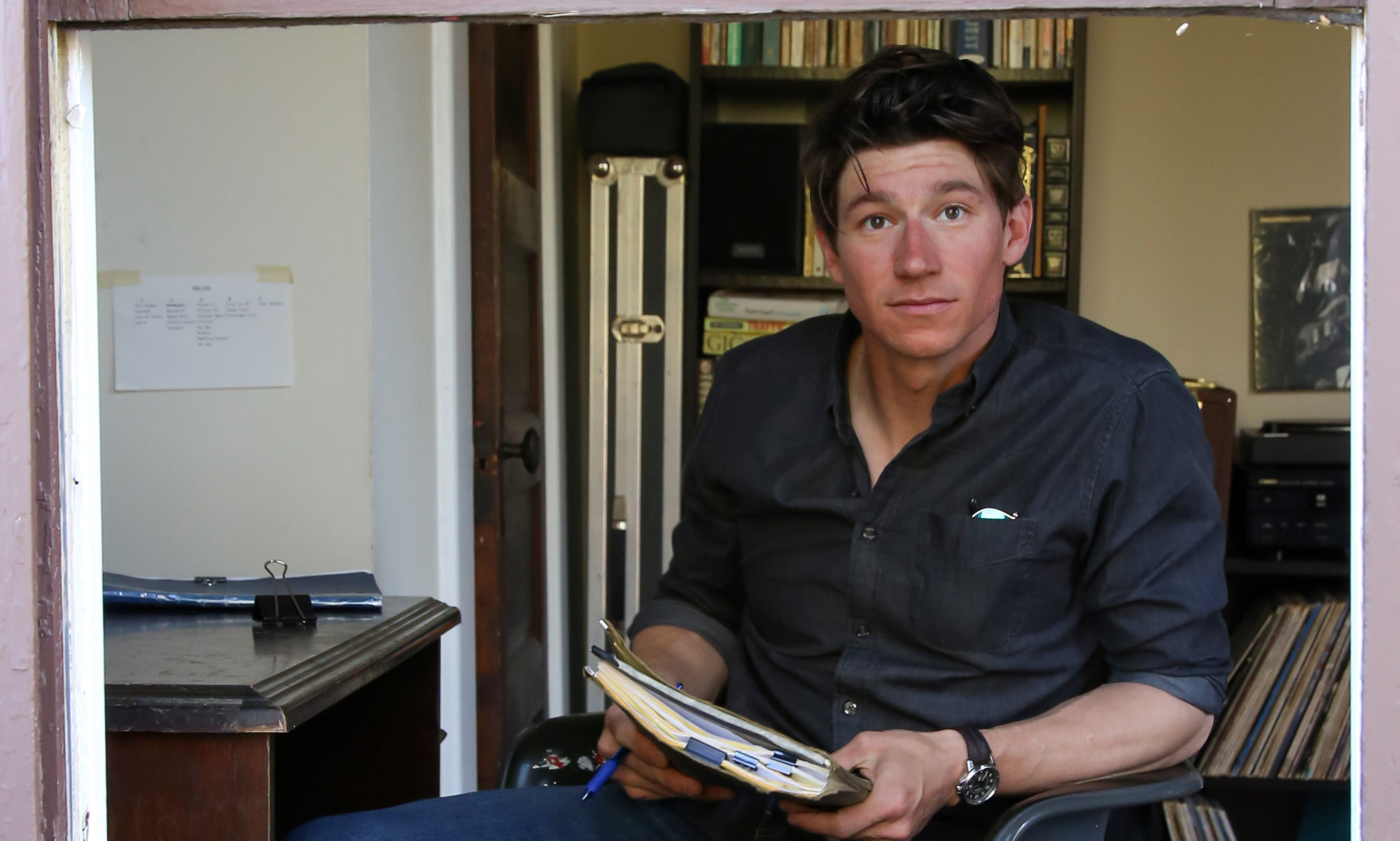
On a warm day a few springs ago, I slept in, ate a large breakfast, stretched, and ran a marathon. I hadn’t trained at all, my legs couldn’t move for 48 hours afterwards, and it’s highly doubtful I’ll ever run 26.2 consecutive miles again. Nonetheless, in what I had decided to call The First Annual Peach District Marathon, I was the lone participant – and therefore, the winner. My five and a half hour finishing time is almost certainly the slowest winning time for a marathon.
I came upon this decision after hearing so many say they wanted to run a marathon but then lamented the difficulty of training and never did anything about it. To me, it didn’t seem hard: You just keep moving your body forward, ignore the searing pain, and travel the pre-determined distance.
To amuse myself along this absurd distance (let us not forget the runner of the first marathon died), I plotted the route entirely along the sidewalks of the twelve square blocks of my neighborhood, weaving through every side street and back onto itself six times to reach the requisite length. The neighborhood had recently been informally rechristened “The Peach District” – hence the marathon’s title.
Two weeks before this date, I hung flyers around town inviting anyone interested to join. As expected, the only ones who joined me at the starting line were my friends, all of whom wore roller blades and didn’t expect to continue past the first mile. I wore shorts, socks, shoes, and some red Sharpie on my bare chest announcing the name of the event and the number “001.” A few minutes after two pm, one of my friends struck a wooden spoon against a mixing bowl, and the “race” began.
With my rollerblading friends weaving through the streets around me, we were a merry sight, full of vim and vigor. There was a camaraderie among us — a big inside joke we were playing on the neighborhood, hoping they would be curious what we were up to and instantly join. This communal spirit lasted about ten minutes, when the route passed one of their houses. As it was a hot day and they had a swimming pool, this was the end of their line. To their credit, they never intended to complete the race, but being abandoned so soon by the only people who knew what I was doing, opting for a cool afternoon of swimming did little to help the sanity of my situation. I did, however, convince them to leave their water pitcher on their front porch and refill it every so often, so I now had fresh water every four miles. Onward.
Lots of people run marathons. From the competitive Olympians who train at high altitudes to the cancer survivors raising money for their cause, the running of 26.2 miles is in no way unique. Many train long hours and overcome fantastic personal hurdles, and I mean not to belittle their accomplishments. But during those long, lonely miles when I was the lone participant, I started wondering what propels someone to participate in an event like this. What, exactly, was I doing?
My route had no signage or closed streets, so I had written the order of the streets on my forearm. Luckily, I had memorized the route by my third lap, by which time the street names had sweated off. The fellow joggers gave me strange looks, but mostly I was unbothered. I was feeling pretty damn good for the first ten miles or so, and then the existential curiousities began creeping in.
Not unlike the fallen tree in the forest, does a marathon completed while no one’s watching still count as a marathon? Is what matters the public declaration of our achievements, or just the internal satisfaction of a job well done? Do physical challenges like these exist only to trick ourselves into a feeling of prolonged mortality?
It’s these sort of useless philosophical questions that occupied my mind over those five long hours. I don’t run regularly and hadn’t for more than five consecutive miles before this, so I can’t speak for most other marathon runners, but I found much of the time to be quite boring. That the scenery repeated itself six times certainly didn’t help. Maybe next time I’ll load up a bunch of podcasts.
For miles fifteen and sixteen it rained heavily, and my previously—sensible outfit became cold and ridiculous. Umbrellas appeared and disappeared, and I started walking. All told, I walked a combined four or five of the miles, and have zero shame in that number. Not having trained gives you plenty of excuses.
At one point, I passed a gentleman for the third time who was lazing the day away on his porch. Finally, he had to know.
“Dude, what are you doing?”
“I’m running a marathon!”
Given that he was asking a topless, soaking wet man with red marker streaming down his chest, perhaps this seemed a reasonable answer. Nonetheless, I took the opportunity to stop and chat for a minute before he cheerily sent me on my way.
As my mileage crept near twenty, I honestly wondered if I’d finish. I felt my body shutting down, certain my knees were eliminating themselves of their cartilage. I also realized nobody was keeping me honest — I could take shortcuts, I could rest a while, I could stop completely. For me, this became quite interesting. With no fellow runners to follow or fans lining the streets, it became abundantly clear I had nothing to prove to anybody to myself. Lying about running a marathon is easy. Still, I wanted to know what it felt like and I wasn’t about to rob myself of that. I acknowledged the searing pain running from my waist to my heels, and mindfully (or stupidly) pushed through it.
Most big cities have at least one marathon. They arrive complete with massive organization efforts, closed roads, live music, matching t—shirts, and an all around jolly good time. They also usually come with an entrance fee. Though I understand the cost from the organization’s perspective, the cost from the participant’s angle — to pay to participate in the perfectly free activity of jogging – seemed to me tougher to justify. My marathon had no entrance fee, no press coverage, no onlookers holding signs, no road closures.
And I think it was at the finish line when I missed the organizations of larger marathons the most. Rather than a finish line surrounded with cheering crowds, photographers, and a glass of water, my marathon ended rather unceremoniously when I collapsed silently into a chair on the patio outside the bar I had started at five and a half hours earlier. After five minutes a waitress came out and I ordered a beer. I checked my phone, returned a few texts, and began two straight days of debilitating soreness.
I was completely exhausted, slightly content, happy to be in a chair, and still confused why I had done this. I had checked off another strange goal on my list, and now could say an interesting sentence at parties when the topic turned to long distance running. But it’s highly unlikely I’ll be returning to defend my Peach District Marathon championship anytime soon. Marathons, as it turns out, require a ridiculous amount of effort and ultimately feel a little too circular for my tastes. Nevertheless, I’m told there’s something to be said about sticking to a goal once you’ve set it.
Now, if only I could choose more productive goals.
—–

